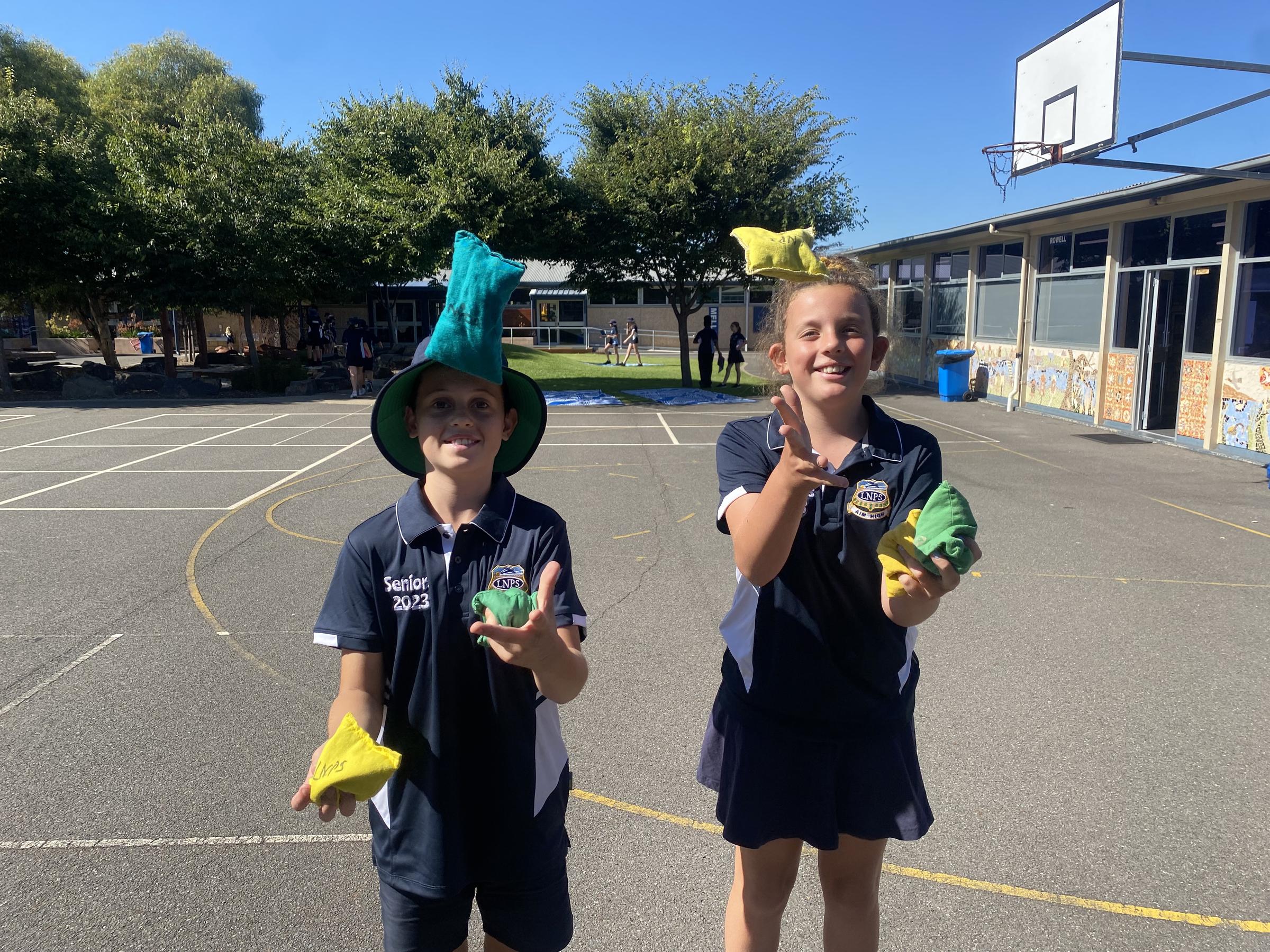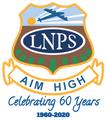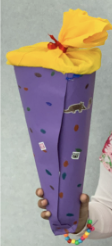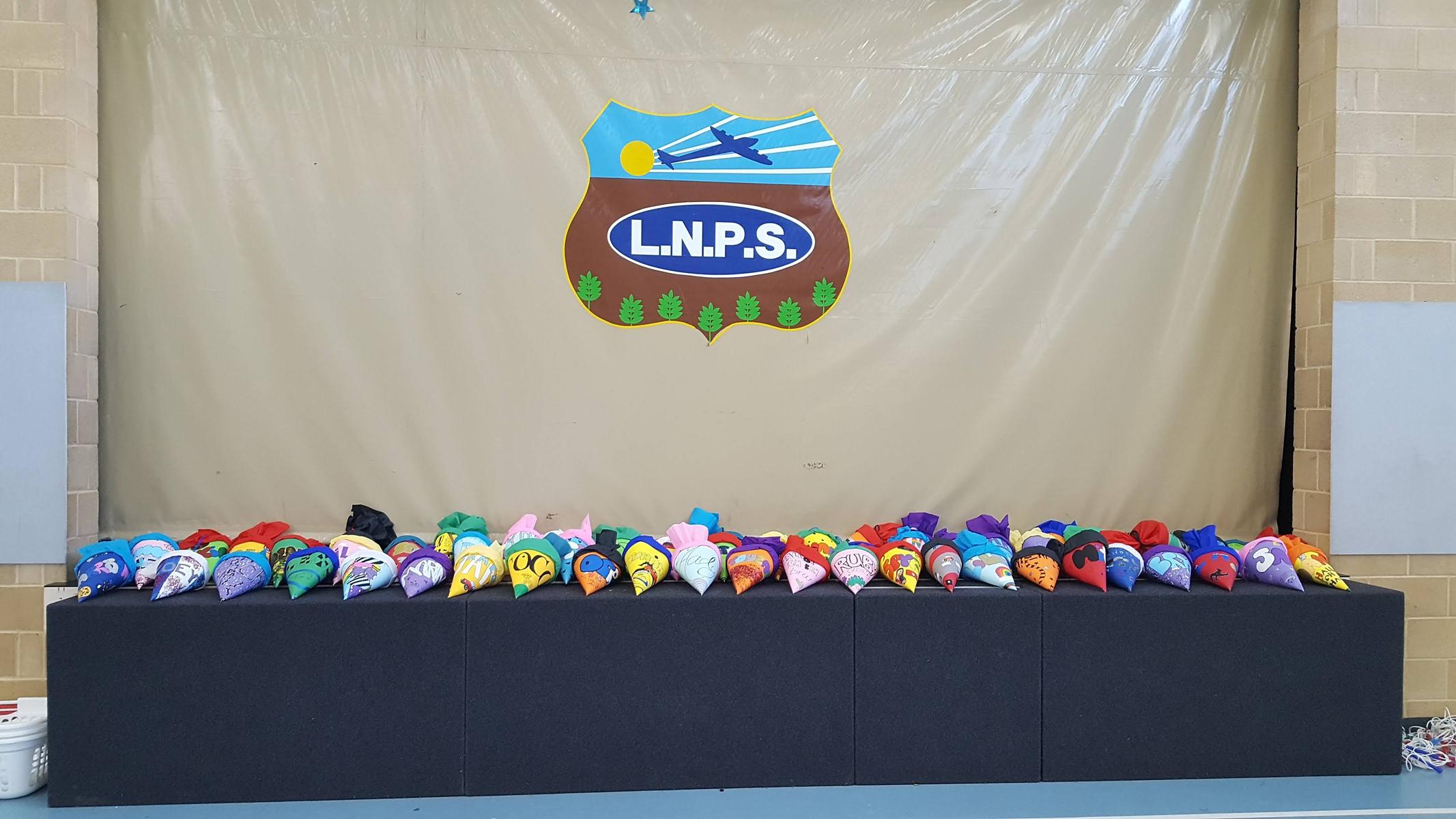SPECIALIST SUBJECTS

This semester our focus in Science is on Physical and Chemical Sciences. In German our focus is on home and links to Germany and Schultüten.
Year 5/6 Science
Physical Science - Energy (10 weeks)
Learning intentions
In this unit students will:
- think and act scientifically by engaging in provocations that elicit prior knowledge and misconceptions.
- identify, describe and classify simple energy transformations.
- investigate and understand how people from different cultures use renewable sources of energy.
- know what makes an energy source renewable or non-renewable and understand the impact of electricity generation on the environment.
- understand how personal and community choices can influence the use of renewable sources of energy.
- investigate household energy consumption and know what can be done to reduce our impact on the planet.
- transfer and apply their knowledge of energy sources to design an eco-house for construction in remote Australia.
Chemical Science - It Matters
Learning intentions
In this unit students will:
- Think and act scientifically by engaging in provocations that elicit prior knowledge and misconceptions about materials.
- Understand the term “states of matter” and explore the properties of different liquids
- Investigate and understand the properties of different solid materials.
- Know that gases are a state of matter.
- Know and understand how our knowledge of matter helps us to make safe choices
- Understand that gases can be produced in different ways.
- Participate in investigations to understand that a unique property of gas is the way it moves.
- Investigate the compression of matter and know that gas can be easily compressed, but solids and liquids cannot be easily compressed.
- Understand the process of evaporation and design an investigation to test ideas.
- Explore how Aboriginal people use an understanding of evaporation to maintain water sources.
- Understand that cooling (removing heat) can cause matter to change state.
- Develop an understanding of how different gases contribute to the greenhouse effect.
- Plan, conduct, evaluate and report on an investigation into a factor that affects evaporation, and to describe and apply knowledge of the properties of solids, liquids and gases.
Year 4/5 Science
Physical Science - World Record Forces
Learning intentions
In this unit students will:
- think and act scientifically whilst engaging in games to elicit prior knowledge and misconceptions about forces.
- know there are different types of forces including contact and non-contact forces, and know examples of where they occur in everyday life.
- think and act scientifically to understand that scientific knowledge can be applied to a variety of different situations.
- conduct investigations to understand the force of friction and how it can be beneficial
- represent data in graphic form and analyse data to identify relationships and patterns between the type of sole, and the amount of friction produced.
- understand how Aboriginal peoples use their knowledge of forces to take part in traditional games.
- understand that magnetism is a non-contact pulling force that acts from a distance
- investigate and understand that all magnetic materials are metal, but not all metals are magnetic.
- identify investigable questions about familiar contexts, and plan and conduct investigations.
- know and understand the importance of forces in our everyday lives.
- investigate how the shape of an object can affect the forces acting upon it.
Chemical Science - Marvellous Materials
Learning intentions
In this unit students will:
- think and act scientifically by engaging in learning opportunities that elicit prior knowledge and misconceptions.
- understand objects are made from materials.
- know the common properties used to describe materials.
- conduct simple investigations to understand different materials have different properties.
- understand that the properties of materials determine their use.
- identify variables for an investigation and determine which variable(s) will be measured, changed and kept the same.
- conduct a scientific investigation and use formal measurements to record observations.
- understand how Aboriginal peoples select and use natural materials.
- understand Aboriginal peoples use different natural materials to produce paint for different purposes.
- understand how plastic is made and the issues created by using plastic.
- understand that natural materials may be processed to make bioplastic.
- apply their understanding of the properties of materials to recommend appropriate uses for a specific material (bioplastic).
YEAR 4/5/6 German
Außerhalb dieser Welt - Out of this world
Learning intentions
In this unit students will:
- identify and recall new vocabulary on the topic of space.
- recognise and use coordinating conjunctions und, aber and oder.
- develop/extend sentences using a coordinating conjunction.
- recognise and use subordinating conjunctions weil and dass.
- recognise how weil and dass impact word order.
- understand the difference between coordinating and subordinating conjunctions.
- recall and use familiar greetings.
- recognise there are multiple ways of expressing the same thing.
- learn about play scripts as a text type.
- identify the key textual features of a script.
- write a simple script.
Trautes Heim, Glück allein - Home sweet home
Learning intentions
In this unit students will:
- identify and recall new vocabulary on the topic of housing.
- compare the style and appearance of housing in Germany and Australia.
- comment on the style and appearance of housing in different environments in Germany - urban, mountains, forests, beachside, riverside.
- understand how housing design/ architecture reflects the climate and lifestyle of a country.
- develop sentences using es gibt.
- recognise the link between a noun’s gender and its definite/indefinite article in relation to furniture, for example, der Tisch, ein Tisch.
- use the nominative and accusative indefinite articles to denote an unspecified object.
- design and label a house in response to a brief/ letter.
YEAR 6 German
Briefe nach Österreich - Letters to Austria
Learning intentions
In this unit students will:
- reflect on the purpose of letter-writing.
- reflect on structure and language.
- identify and recall new vocabulary on the topic of letter-writing.
- recognise how language reflects politeness and closeness of social relationships.
- recognise that greetings can vary according to country, region and dialect.
- identify their audience.
- use informal and formal language.
- define/ describe what is meant by the word intercultural.
- reflect on letter-writing as an intercultural experience.
- share cultural traditions and values.
- apply text features and writing conventions.
- write a letter to a penpal in a German-speaking country.
Schultüten (100 Days of School Gift to Receptions)
Learning intentions
In this unit students will:
- understand that the term Schultüte has no direct translation into English.
- understand that the Schultüte is part of school culture in Germany and an ongoing tradition.
- understand how a gift can give joy and contribute to a child’s identity and feelings of belonging at school.
- organise their time and meet deadlines.
- create a journal to document the making of their Schultüte.



